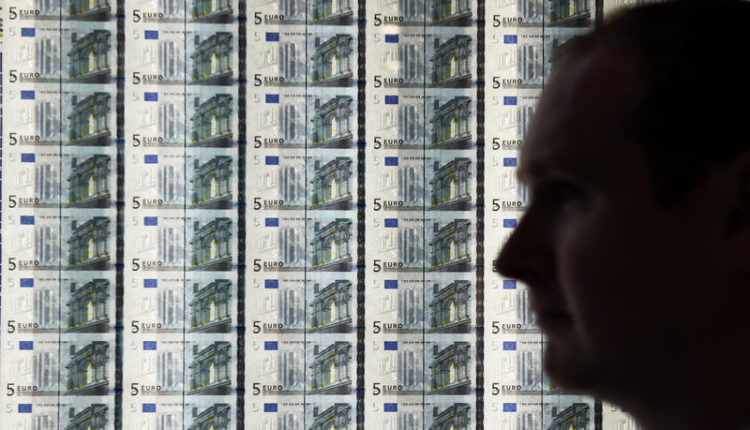Euro hits two-month low as markets wait to gauge ECB’s policy stance
By Shinichi Saoshiro
TOKYO (Reuters) – The euro slipped to a two-month low on Wednesday, as markets waited to gauge the European Central Bank’s stance on policy amid bubbling expectations that it could eventually lower interest rates and join the global easing trend.
The common currency (EUR=) was little changed at $1.1147 after touching $1.1144, its lowest since May 31. It had already lost more than 0.5% the previous day.
The ECB holds a policy meeting on Thursday. Market expectations for the central bank to cut rates by 10 basis points have ebbed somewhat, but the central bank is still hoped to provide dovish guidance, paving the way for easing in September.
“Attempts within the currency market to price in dovish moves or language by the ECB have gathered pace over the last few days, leading to the euro’s steep decline,” said Yukio Ishizuki, senior currency strategist at Daiwa Securities.
“The key point is not necessarily whether the ECB eases this week or not, but what kind of language (President Mario) Draghi employs regarding policy direction.”
The euro was also seen weighed down as the pound slumped towards a two-year low after Boris Johnson on Tuesday won the contest to be the next British prime minister and raised the specter of a no-deal Brexit.
Sterling was a touch lower at $1.2436, on track for its fourth straight day of losses and edging closer to $1.2382, the two-year trough brushed last week.
The dollar was steady at 108.230 yen , supported as U.S. Treasury yields climbed to a one-week high amid the ebb in investor risk aversion following some progress in U.S.-China trade negotiations.
U.S. Trade Representative Robert Lighthizer and senior U.S. officials will travel to Shanghai on Monday for face-to-face trade meetings with Chinese officials, Bloomberg reported on Tuesday, citing unnamed sources.
The greenback was also lifted after Washington on Tuesday reached a deal to lift government borrowing limits. Analysts reckon increased U.S. borrowing would tighten the supply of money in the country’s banking system and in turn support the dollar.
The dollar index (DXY) edged up to a five-week high of 97.746, following gains of nearly 0.5% the previous day.
The Australian dollar dipped about 0.15% to a 12-day low of $0.6992 against a broadly firmer greenback.

